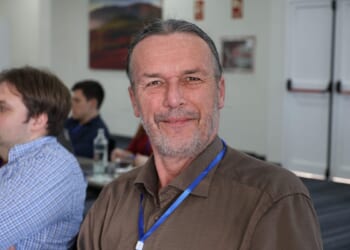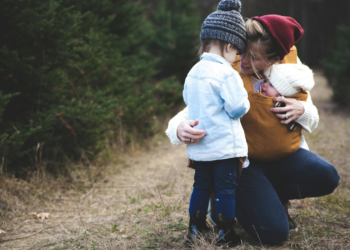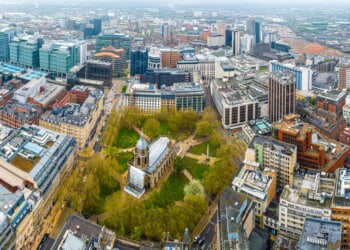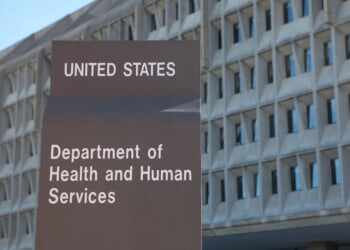ACI Africa, Aug 30, 2025 /
07:00 am
In one of the worst and most underreported humanitarian crises in the world, taking place in the northern Darfur region of Sudan, aid agencies have struggled to reach the desperate while lamenting the lack of global media coverage of what is happening there.
The country representative for Sudan for the Catholic Agency for Overseas Development (CAFOD), Telley Sadia, recently spoke to ACI Africa, CNA’s news partner in Africa, about the growing humanitarian crisis in Sudan and the need for the international press to give it “a voice.”
“This is one of the biggest humanitarian situations in the world, which, unfortunately, has not received much international press,” said Sadia, who has worked in Sudan for many years. “My message is to the media: Sudan needs a voice. I look forward to the day when the world will be made aware of what is actually happening in this country.”
His comments echo the sentiments of the executive director of CAFOD, Christine Allen, who in an Aug. 2 interview told ACI Africa that in the U.K., “trying to get coverage on the media or political interest in Sudan has just been almost impossible.”
Below is part of the interview Sadia gave to ACI Africa about what is happening on the ground right now in northern Darfur and the role CAFOD is playing to assist those in need as they continue to find innovative ways to deliver water, medicine, and different forms of aid to the people.
ACI Africa: What is the current general humanitarian situation of Sudan?
Telley Sadia: The situation isn’t good, especially in locations where fighting is still ongoing, like in the Darfur region and in the Kordofan region. Because of the fighting [two years of heavy fighting between the Rapid Support Forces and the Sudanese Armed Forces], lives are being lost. The infrastructure has been destroyed. People don’t have food. It is in Kordofan where you heard people were at one point feeding on leaves. In the Darfur, the situation is the same.
Accessibility to these places remains a challenge and getting aid to the people who are trapped there is not easy. People have lost their lives because of loss of blood or lack of adequate medical attention.
Children have lost about three years now of not going to school, especially in these locations. In locations such as Kosti where fighting has not been intense, schools have been converted to camps for people fleeing from places where there is still intense fighting. Children not going to school is a challenge that we are going to grapple with for a very long time even after the war is ended.
A majority of those staying in crowded camps are women, children, and the elderly. Most of them are really traumatized. The Sudanese, especially those in the Darfur region, have experienced war before, but nothing came close to what they are witnessing now. Those in Khartoum, going north and in other parts of the east, had never experienced what they’re experiencing now. That is why many in camps are really traumatized.
Even in locations where there is no fighting, we are having economical challenges. The inflation is very high. Liquidity is at zero. It’s very rare to see hard currency. The old currency that was changed is now back into circulation because people don’t have money. Whatever they had that they couldn’t change because of the war is what they are using.
And then, it’s also making it difficult for agencies to easily meet their financial obligations because the banking systems are not efficient because of the situation.
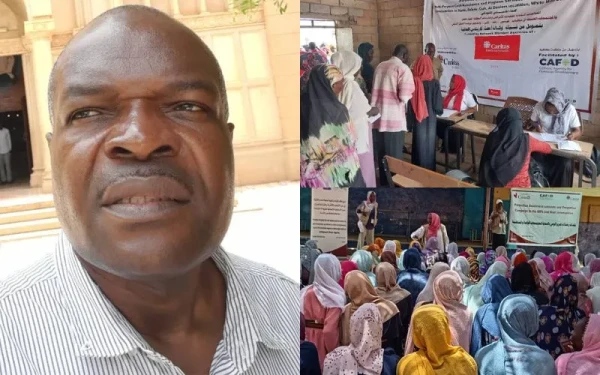
In what ways does CAFOD work with local partners and the Catholic Church on the ground?
CAFOD is a partner-led organization. We work with local partners because they are the ones who are closest to the people, and our desire is to strengthen their operational systems.
Some of these organizations are within the communities, and so, they can easily respond to the needs of the people. We work with Caritas Sudan and secular organizations located within these communities.
(Story continues below)
Subscribe to our daily newsletter
We also work with small Christian communities. The challenge, however, is that most humanitarian organizations fled when fighting intensified in north Darfur.
What are CAFOD’s success stories while intervening in the Sudanese crisis?
Beginning August last year up to early this year, we had a huge influx of IDPs [internally displaced people] across the country in about 11 states. Displaced people found refuge in Church premises. The Church was overwhelmed. There were no resources to meet the needs of the people and there was the fear of the outbreak of diseases, especially cholera.
Fortunately, we had already launched the CAFOD Sudan Appeal, where we get support from well-wishers back in the U.K. From the appeal, we raised funds, and we were able to reach all the 11 states, in the Church premises where IDPs were gathering. We went around distributing food, water, and medication. Many people who came in injured were provided with care.
We also worked with other mutual aid groups to support people who were camping in open spaces to provide them with hot meals and clean water. Our immediate response was appreciated by both the Church and the authorities.
What areas does CAFOD generally focus on in Sudan?
CAFOD started its operations as a grant management organization from the U.K. in the 1970s, and then it opened the country offices in 2004. Our work focuses on WASH [water, sanitation, and hygiene] as well as nutrition and protection. We are also doing emergency response for situations like floods and also support schools. We engage in sustainable livelihoods, and we are focusing quite a lot on agriculture and cash assistance.
How has the conflict impacted CAFOD’s operations?
We have been forced to close our offices in El Fashir. Now we are working through local partners who are based there, and things are not as they were before when we had CAFOD staff and an office in the city of El Fashir.
We also had to close our country offices in Khartoum, and this has been a great challenge because now we are operating from our few remaining field offices. This has been very inconvenient.
When war broke out, we had to downsize our staff as we monitored the situation. What we had for a long time was skeletal manpower as we worked mainly through partners, but as we stabilized again after the shock and started getting used to the situation, we had to bring in more new people as the needs grew.
We need to expand our protection program for the vulnerable and fast-track the WASH activities we put on hold for about five to six months. Some of our water projects are lagging behind, and we are fast-tracking them to reach at least 90% completion by the end of this year.
What areas in Sudan remain completely inaccessible to aid organizations?
There are areas where you can’t really access where there is active fighting. Like now, El Fashir town is completely inaccessible. For you to get to this place, you must first go to Chad. You fly to Egypt or Ethiopia, then connect to N’Djamena.
At the border between Chad and Sudan, you encounter a fresh set of challenges. You must first be cleared by Chad authorities. You get a visa, which sometimes takes days to process before you are cleared to proceed to Sudan.
There are also areas in-country that are not easily accessible because they are controlled by either of the warring parties. In many cases, there has not been any engagement between the parties to allow for safe passage for international agencies. Traveling to these areas is like traveling to another country altogether.
What I know is that El Fashir is not accessible. You can’t go in. Coming out is also a challenge because of the unending bombardments. There is fighting going on in other places such as West and South of Kordofan. What we only see are people coming out of these places to seek refuge. But it is still difficult for other people to go in, even humanitarian agencies.
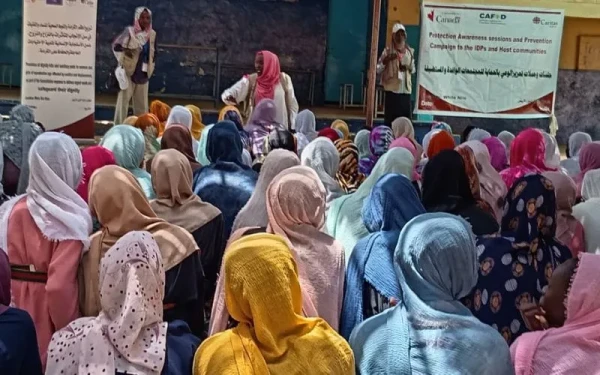
What kind of support is most urgently needed from the international community right now?
Health care and food. Those who need urgent health care are the terminally ill who cannot access treatment because the systems have been broken down, as well as the women and teenage girls who have been abused and require trauma-related support.
People need food. I’ve been in Sudan for a number of years, and I never saw the number of women and children on the streets begging as it is now. All they want is something to eat. The issue of hunger is really serious, and it needs to be addressed.
But the most urgent need for me is for some level of understanding to be reached so that people can have a break from all this stress, and for humanitarian agencies to have free access to places where there is so much need.
Who would you address in your final message concerning the situation in Sudan?
My message is to the media: Sudan needs a voice. I look forward to the day when the world will be made aware of what is actually happening in this country. It is only this awareness that will create a change of attitude of the leaders of the two warring factions, so that they can give peace a chance. And by giving peace an opportunity, people will be able to get back to their normal lives.
This is one of the biggest humanitarian situations in the world, which, unfortunately, has not received much international press. Sudan is not heard. There isn’t much awareness on what is actually happening here. And because of this, not much pressure has been exerted on the warring parties to reach some level of compromise, so that there can be some level of peace for people to at least be a bit free. And also, for humanitarian agencies to have access to the parts of the country where the people have been caught in crossfire, where we cannot access. So, the humanitarian situation remains dire.
The information and interview for this story was first published by ACI Africa, CNA’s news partner in Africa.








